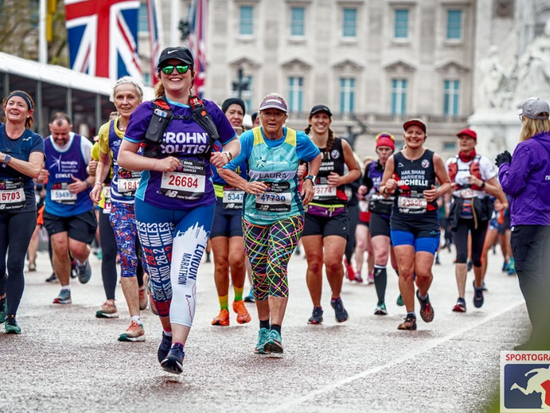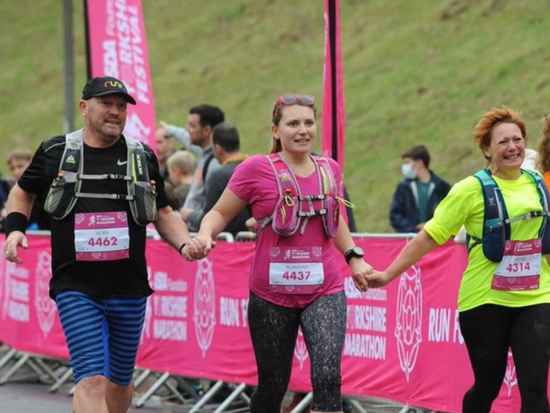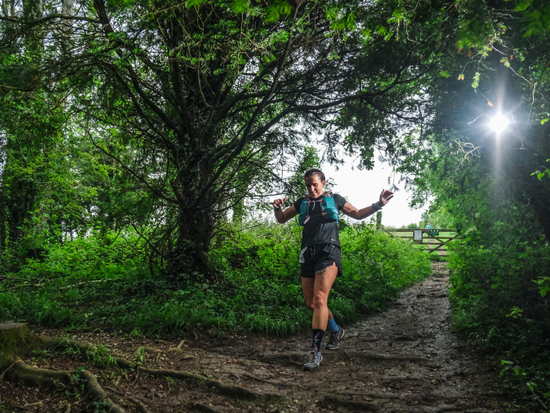Maskne - How to prevent it, and what to do if it causes problems
(Guest post by Dr Charlie Mitchell, Consultant Dermatologist)

Who would have thought back at the start of 2020, that the world we live in would have changed so much? If you had told me that the common sight of Asian workers wearing masks on their daily commute, or even all day in their work-places, would be de rigueur across the UK and for most of the world by June 2020, then I would have laughed heartily.
Before this massive change of perspective, I was used to wearing masks daily for my job, mainly when carrying out surgical procedures, over long periods of the day. Even wearing masks for those intermittent periods it could be a hassle. So now that the NHS, and many other workplaces, have stipulated that employees protect themselves and others by wearing mask all day, I know how you are all feeling.
Unfortunately, masks impact on more than simply covering the mouth and nose - they affect our ability to communicate clearly. So much of human interaction is non-verbal, and it is surprising how covering even tiny movements of the lower half of the face can affect how someone understands your meaning. In a good example of individuals' attempt to focus on the areas that people can 'read', it can be totally understood why the sales of eye make-ups have increased 200%, whilst lip care products revenue has dropped back by two thirds!1,2
As most of you may now understand, wearing masks for long-periods causes another irritating side-effect due to the occlusive nature of their design. The long periods of hot, humid air stagnating over the skin around our mouths and noses can lead to an environment that drives skin irritation, inflammation and occasionally infection. This is the triad that causes simple acne spots to appear on otherwise healthy skin, but will also worsen the condition of skin in those prone to, or already suffering, from acne vulgaris.
(Just as an aside, the 'vulgaris' bit of that term comes from the Latin for 'common', as in it occurs regularly or frequently. As in psoriasis vulgaris, psoriasis is widespread in the general population, or the common wasp's Latin name of Vespular vulgaris. Also the put-down of something or someone being 'vulgar'. Make of that as you will.)
Now, getting back to the point of this post - how can you best prevent 'maskne' affecting your skin, and if it appears, how can you treat it successfully?

Take regular mask breaks
Going back to the main cause of maskne, regular wearing of a facial covering leads to a hot, humid environment around the skin of the lower face, and although simple and probably obvious, the more you can give your skin a break from this, the better your skin will do. Try to arrange regular periods throughout the day where you can get outside (preferably), take off your facial covering and get some fresh air into you, and onto your skin.
This is good not only for your skin, but also for your mental well-being - research has demonstrated that taking regular breaks (every 45 to 60 minutes) from concentrating continuously on one job or task is helpful to maintain overall focus and efficiency.3 Plus there is the chance to stretch your legs, helping to maintain physical activity generally. So get up, get out and move about - and take off your mask!
Tips to look after your skin
Apart from reducing the time spent wearing a mask, the next best thing is to help your skin fight off the stress - be kind to it. Starting with washing, don't feel the need to scrub the skin too much. It is not 'unclean', just out-of-sorts. Use a gentle cleansing wash, at the end of your daily mask-wearing session. Using gentle circular motions when cleaning will help to lift off dead skin cells, residual make-up and any excess sebum from the skin.
Then once the area is cleaned, pat the skin dry and moisturise with a simple and effective moisturiser. Do this immediately after cleaning, locking in the moisture the top layer of your skin has absorbed from the washing. This is what I recommend for all individuals with any type of skin condition, from eczema to psoriasis or acne, to help keep the skin barrier in the best shape possible. And ideally, moisturise your skin again at least once more during the day. You can wash twice daily too, repeating the immediate moisturising as well, but I would not recommend cleaning more than this.
Avoid harsher products on your skin like retinoid creams or facial peel products. The use of these will irritate the skin, and when combined with the mask's occlusive environment, this won't do you any favours. Salicylic acid containing products can also help prevent breakouts, but again be cautious if it starts to irritate, given the close contact of mask material rubbing over treated areas.
Use of make-up
Avoid make-up in the mask area if possible, but if it is essential, then try to use a thinner layer when applying. Thick extra layers of makeup on your skin will not help breathability, especially when covered by a mask. So give your skin a helping hand and try not to use too much product.

How to look after facial coverings
For reusable masks, cloths or scarves, use a freshly cleaned item each day - have a few available so you can use them in rotation, and when washing, launder them with a detergent at a high temperature. For disposable masks, use a new one daily, and throw away at the end of the day.
If you are making your own masks (and well done you!) then try and make them with a few layers of light-weight fabrics overlaid, rather than a single layer of thick/heavy material. This will improve breathability of the mask and will maintain its effectiveness, not defeating the reason you are wearing a mask - to protect others from potential infectious droplet spread of SARS-CoV-2 viral particles.
If you get maskne spots appearing
The use of benzoyl peroxide cream (which is easily available at most chemists or pharmacies), when used twice daily to any spots that appear, should help shift spots faster. It can occasionally be irritating for some skin types so use it carefully, and if you react too much then try a weaker (or lower percentage) preparation, or use it less frequently. Keep moisturising the skin as well with a good emollient cream or lotion, as this helps in maintaining the good skin barrier against the outside world and helps to heal up spots and breaks in the skin.
If you have a large outbreaks of acne, suffer from acne anyway, or have acne in areas away from the mask area, then have a look at the British Association of Dermatology's acne website (http://www.acnesupport.org.uk) which has some good tips on what to do next, which may include speaking to your GP or potentially being referred to see a dermatologist.
In conclusion, as there may be the need for mask-wearing for some months to come, suffering from maskne is not ideal, on top of all the other craziness in the world at the moment. Try the above tips and tricks and I hope it all works for you.
Please look after yourself, look after your skin, protect others and stay safe!
Dr Charlie Mitchell
References:
- https://www.businessinsider.com/eye-makeup-sales-rise-lipstick-dips-due-to-mask-wearing-2020-8?r=US&IR=T (Accessed 27/9/20)
- https://www.globalcosmeticsnews.com/goodbye-lipstick-effect-hello-mascara-index-how-covid-19-may-have-changed-the-beauty-landscape-for-good/ (Accessed 27/9/20)
- https://thewellbeingthesis.org.uk/foundations-for-success/importance-of-taking-breaks-and-having-other-interests/ (Accessed 27/9/20)
- http://www.acnesupport.org.uk (Accessed 27/9/20)



